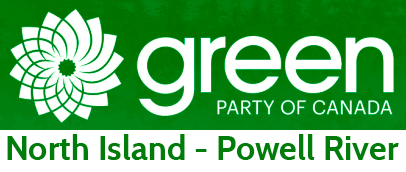Must Reads from Last Week
Locally
Greens of North Island-Powell River December 2018 gathering
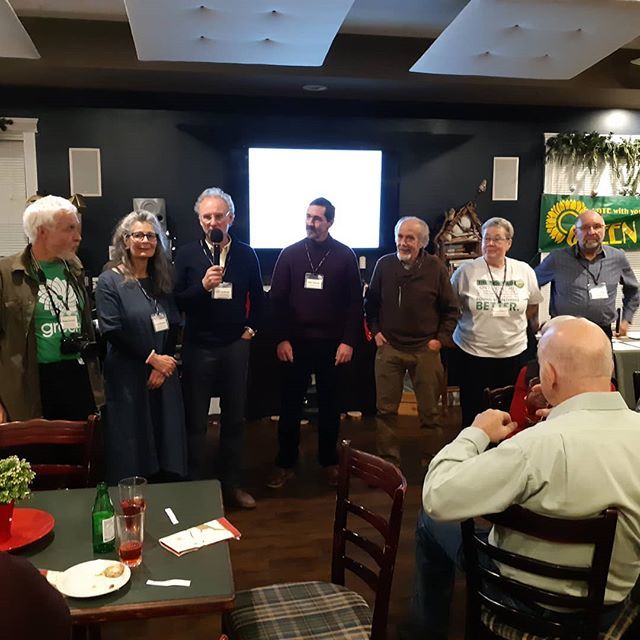
Left to right: Doug Cowell, Carol Thatcher, Mark de Bruijn, Blair Cusack, Jay van Oostdam, Megan Ardyche, Mark Tapper (Photo by Pieter Vorster)
About 40 Green supporters gathered at the Comox Golf Club to eat, drink and get reconnected. The next gathering will be NIPR’s candidate nomination meeting sometime in January or early February 2019.
Provincially
The BC referendum on proportional representation
We know that the Liberals and the anti-PR campaign are now focused on delegitimizing the outcome of the voting referendum even before the results have been announced. Watch this video to find what they’re doing and how you can block their obvious moves against democracy in action.
Municipal leaders vote in favour of a new watershed governance model
In September, this blog reported on the push for this resolution at the Union of BC Municipalities upcoming meeting. “In essence, the resolution is a transfer of resources and a sharing of responsibilities (from Province to Municipal) to allow for local governments, in partnership with First Nations and local watershed entities, to have the power to address community water needs and concerns locally.” Read more.
Now you can also test your River IQ. You can play this game over and over; each time you will get different rivers to choose from, and brief information about that river.
Site C: Parks Canada shirks UN request for review of Site C dam impacts on Wood Buffalo National Park

“UNESCO issued a stern warning that, in order to keep Wood Buffalo National Park off a list of world heritage sites in danger, Canada must take ‘major and timely’ action on 17 recommendations, including an impact assessment of B.C.’s controversial megadam.” Read more. See here for a photo essay and the first of a series of articles on Wood Buffalo Park.
Whistler wants to bill Alberta oil and gas company for climate change expenses
“The request is part of a campaign by West Coast Environmental Law and started as a motion to Union of British Columbia Municipalities during its annual meeting this year.” Read more. As this blog has reported previously, that resolution at the UBCM was voted down, but it is encouraging to see that there are municipalities going ahead anyway. The West Coast Environmental Law website shows which municipalities have already sent letters, and whether they’ve received a response.
Even though there is some movement in the direction of municipalities holding fossil fuel companies financially liable for costs of dealing with consequences of global warming, earlier this year a judge in San Francisco threw out just such a suit. Judge William Alsup said, “Noting that the world has also benefited significantly from oil and other fossil fuel, [he] said questions about how to balance the “worldwide positives of the energy” against its role in global warming “demand the expertise of our environmental agencies, our diplomats, our Executive, and at least the Senate. The problem deserves a solution on a more vast scale than can be supplied by a district judge or jury in a public nuisance case… the judge said he accepted the “vast scientific consensus” that the combustion of fossil fuels has contributed to global warming and rising sea levels. But he questioned whether it would be fair to “ignore our own responsibility in the use of fossil fuels and place the blame for global warming on those who supplied what we demanded.” This is essentially blaming the consumer for using the products skillfully marketed to us by an industry who has seemingly endless dollars which can be spent in creating an appetite for convenience. The appetite was created long before consumers could make informed decisions about greenhouse gas emissions from their handy plastic food containers.
BC government announces transition of Vancouver Island-area fish farms by 2023
This is both a national and a provincial issue. John Horgan’s government is calling this reconciliation with First Nations, and protecting wild salmon. Never mind that the fish farm companies, mainly Marine Harvest and Cermaq Canada, have another four years before this takes effect. Federal Fisheries Minister Jonathan Wilkinson also announced the development of a federal aquaculture act. Read and listen more. Watch Chief Bob Chamberlin of the Kwikwasut’inuxw Haxwa’mis First Nation as he thanks the fish farming companies for engaging in the dialogue.
Excerpt: “In June [2018], the NDP introduced new rules mandating fish farm operators get clearance from the federal Department of Fisheries and Oceans that they are not adversely affecting wild salmon populations, and that the province would only renew or issue permits to companies that have negotiated agreements with the First Nation in whose territory the company would operate.”
In the context of reconciliation, one of the points stressed by both the companies and the BC government is that the consent of local First Nations will be required. In fact, Keith Baldry of Global News repeated that comment a couple of times. However, Lana Popham, BC’s Agriculture Minister, “said that requiring First Nations to have agreements does not mean that there is a veto in place.” How does that work exactly? It sounds suspiciously like Justin Trudeau saying the government will engage in “meaningful consultation” with First Nations, but that the Trans Mountain pipeline WILL go through.
Alexandra Morton continues to oppose farmed salmon. Morton also feels punting this action down the road four years is a political tactic. “The B.C. NDP gov[ernment] had everything they needed to protect wild salmon and respect First Nations. Instead, they put their decision on a stick, holding it like a carrot if we vote for them again…The NDP gave us these farms and now they preside over the collapse of wild salmon. Shame.” Read more.
Earlier in the week, the feds announced they were creating a single comprehensive set of regulations to clarify how fish farming is done in Canada.
Trans Mountain: Indigenous leaders unite at Montreal climate rally to stop the expansion pipeline
“Today First Nations in Quebec stand with First Nations in British Columbia. Trans Mountain will not be built and Energy East will never see the light of day,” said Grand Chief Serge ‘Otsi’ Simon of the Mohawk Council of Kanesatake. “The realities of climate change demand an unprecedented level of ambition and any new project that allows oil sands expansion is inconsistent with what the science dictates… The Indigenous leaders were representing some of the 150 Indigenous Nations in Canada and the US who have signed the Treaty Alliance Against Tar Sands Expansion in opposition to the Trans Mountain Expansion pipeline and other attempts at expand tar sands production, including Enbridge’s Line 3 and TransCanada’s Keystone XL pipelines.” Read more.
However, the battle isn’t only against Trans Mountain. CoastalGasLink, “a subsidiary of TransCanada Pipelines Ltd., filed an application for an injunction on Friday to gain access to the Morice River Bridge, which it claims is being blockaded by the Unist’ot’en Camp and stalling construction on the project… Karla Tait, an Unist’ot’en house group member, said in a statement that the two people named in the application were not hereditary chiefs and that the injunction ignored the group’s jurisdiction over the land, on which it operates a holistic healing lodge.”
On December 14, an interim injunction was granted which “gives Unist’ot’en representatives more time to respond to the application from Coastal GasLink before a more permanent decision is made on access to Wet’suwet’en land west of the Morice River.”
The latest on the Kwispaa LNG pipeline that will run through the Powell River/Comox Valley to Sarita Bay in the Port Alberni inlet
This blog has covered this possible pipeline previously, on November 10 and November 24.
The Canadian Environmental Assessment Agency issued its environmental assessment determination and decided that an environmental assessment of the designated project is required.
The Agency commenced the environmental assessment and is inviting public comments until January 16, 2019 on the proposed guidelines for the preparation of the Environmental Impact Statement. This document specifies what should be examined during the environmental assessment.
Relevant information can be found at the links below:
Project page: http://ceaa-acee.gc.ca/050/evaluations/proj/80160?culture=en-CA
News Release: http://ceaa-acee.gc.ca/050/evaluations/document/126322?culture=en-CA
Public Notice: http://ceaa-acee.gc.ca/050/evaluations/document/126321?culture=en-CA
Draft EIS Guidelines: http://ceaa-acee.gc.ca/050/evaluations/document/126320?culture=en-CA
Notice of Determination: http://ceaa-acee.gc.ca/050/evaluations/document/126318?culture=en-CA
Notice of Commencement: http://ceaa-acee.gc.ca/050/evaluations/document/126319?culture=en-CA
Comments on the draft Environmental Impact Statement Guidelines can be submitted to CEAA.Kwispaa.ACEE@canada.ca. In order to ensure that the Agency is able to consider your comments in finalizing the Environmental Impact Statement Guidelines, please submit them by January 16, 2019.
Here is a terrifying possible scenario if (or when) a Tsunami happens in the Inlet written by Keith Wyton, the Regional Director for the Port Alberni area, in August 2016.
Nationally
Reconciliation: Indigenous journalists speak up
You probably remember the news recently that the Federal Liberals are earmarking $595 Million for “Canada’s media sector, including measures to facilitate fundraising by non-profit news organizations and tax breaks to fund the production of original content.” It will be interesting to see how much – if any – of that money goes to Indigenous media. This article by Emilee Gilpin of The National Observer is a very interesting read. The article links storytelling to journalism, and also links storytelling to Indigenous “community governance, preservation, identification, and more.” The Indigenous journalists interviewed for this article point out the historical function of the media in perpetuating “stereotypes of inferiority that in many ways normalized genocidal systems, laws and policies of control that continue to oppress Indigenous peoples today.” The article also discusses information found in “Seeing Red,” a book by authors Mark Cronlund Anderson and Carmen L. Robertson (Lakota), published in 2011, and the winner of the Saskatchewan Book Award for Scholarly Writing, First Peoples’ Writing, and the Regina Book of the Year. For those interested in the history of journalism’s take on First Nations from 1869 to the present, this is a must read summary (and a book-to-buy tickle). The whole article is a fascinating read. See this site for a review of Seeing Red.
GenSqueeze makes a leap into defending environment
Ottawa’s Nepean High School Grade 12 students Maddie Curphey, Bronwyn Ford, Dominique Souris and Ella Barney make their point. Photo supplied by Gen Squeeze.

This blog has covered Generation Squeeze before. They advocate for young people around economic issues, but now they’re moving out into taking climate issues to the courts. Read more.
Corporate Capture: Most oil sector emissions will be exempt from carbon pricing
In stunning political double-speak (that’s the polite term), Trudeau’s “price on pollution” will exempt the oil and gas industry. Read more. Even so, the Federal Conservatives are lobbying for Trudeau to repeal the carbon tax to save the auto sector.
Corporate Capture: Sable Island area open for oil and gas drilling
If you don’t know about Sable Island, off the coast of Nova Scotia, it is truly a unique place. Now, according to Sierra Club, the Trudeau government has called for bids from the oil and gas industry to bid for drilling rights in the waters around Sable Island. Sierra Club’s website is calling for people to write to Justin Trudeau to protest this action, and to demand Sable Island be protected from drilling.
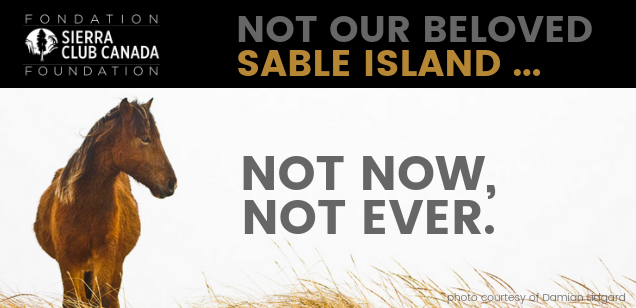
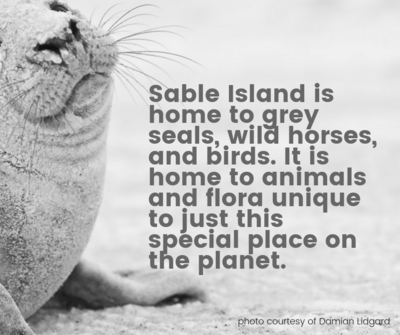
… and a Photo essay: Faces of offshore resistance
Opposing offshore drilling is just one piece of the ‘keep it in the ground’ movement calling for no more new fossil fuel development or infrastructure combined with investment in a just transition for workers and our economy on a global scale. This photo series highlights a number of community activists fighting to protect their homes, coastal communities, fisheries, tourism, and cultural history from the harms of offshore drilling.
… and the Financial Post carried this article
Excerpt: “Sable Island is a massive, shifting sand dune adrift in the wilds of the North Atlantic and we must safeguard its tenuous existence,” Gretchen Fitzgerald, director of the Atlantic Canada chapter of the Sierra Club Canada Foundation, told a news conference Thursday. This is a test for how we must change if we’re going to truly tackle climate change and protect global biodiversity.”
Globally
Three messages about education from leaders at the G20
- Education is a human right.
- Girls’ education is a priority.
- Skills matter in a rapidly changing world. Read more.
Coincidentally, educating girls is also a leading way to address global warming, according to Project Drawdown.
…and from the UN – Women will be silent no more!
Watch this very short but punchy video.
COP24
December 9 update from Elizabeth May: “Update #1: Late on a Sunday night in Poland. Late last night the APA meeting ended without solving the dispute about whether the COP will “note” the IPCC 1.5 report or “welcome” the report. The issue now gets kicked over to the High-Level segment - all next week with the agenda for ministers. The countries blocking “welcoming” were predictable and thuggish - USA, Russia and Saudi Arabia. But that does not end the matter as we push on starting tomorrow AM early.”
December 10: “The mood here is low-energy. Diplomats are confident that their low objectives will be met. No major country is stepping up to improve its climate plan to be compliant with the IPCC report. I’ll keep fighting!” Here’s Elizabeth’s video blog on the discussions.
December 11: “Today started reports on the Talanoa Dialogue - the otherwise described “facilitative dialogue” on where we are now, where we need to be and how we get there. A rare breath of truth and urgency from Laurent Fabius, former Prime minister of France and the president of 2015 COP21 in Paris. We are not moving fast enough. We are not doing enough. A major area of progress at this COP is the support for on-going indigenous involvement in the Paris process through a “small communities and indigenous peoples’ platform.” I (predictably) want more than process. But it is essential that indigenous peoples globally have a point of access to rights of participation.”
December 12: “In the Canada update for ALL Canadians at COP24 - whether on government delegation or not, Catherine McKenna saying “my priority here is to land the Rule Book for the Paris Agreement.” Just came from the “Green Family Breakfast”- our annual COP gathering of Green Party members and elected MP Greens, some ministers of environment and /or climate from around the world. Comment from one “People on the street are not chanting ‘We want the Paris Rule Book and we need it NOW!” The COP24 is not moving toward meeting the IPCC report…we are acting like we have time and we do not. By the way, the issue of whether we “note” or “welcome” the IPCC report is not a real issue. The IPCC report was mandated by the COP21 decision document from 2015. The IPCC report was signed off by all governments - and watered down to accommodate the USA and the Saudis. So the debate over one word has, in a weird way, distracted from actually acting on meeting the 1.5C. IPCC goal. Over the next few days the wording issue may come to a compromise. But the reality is that it doesn’t change the need for countries, like Canada, that “welcome” the IPCC report to actually improve our target to meet what the IPCC says we MUST do.”
Video blogs from Elizabeth May:
Blog #1
Blog #2
Blog #3
Blog #4
Also on December 12, here’s Elizabeth’s Report from COP24.
On December 14, Elizabeth said the governments around the world were not making a decision to take action on global warming, and here’s another video blog from December 15. Elizabeth also hosts a press conference after COP24. One of the panelists stated that the wealthiest 1% of people globally are the highest contributors to greenhouse gases. Elizabeth suggests that since some of them have expressed a desire to go to Mars, we should find a way to send them sooner rather than later.
CBC’s The Current
Political leaders at COP24 are struggling to reach a consensus on how to tackle climate change, but how do we find that common ground in our everyday lives? As part of a special edition on climate change, The Current invited two Canadians with different perspectives to talk to each other about the decisions they think we have to make.
Elizabeth May is also on the program, right at the beginning. She sees the fundamental question as, “Do we want to survive, or not?” Catherine McKenna’s Parliamentary Secretary spoke the usual talking points, as though the words actually meant something.
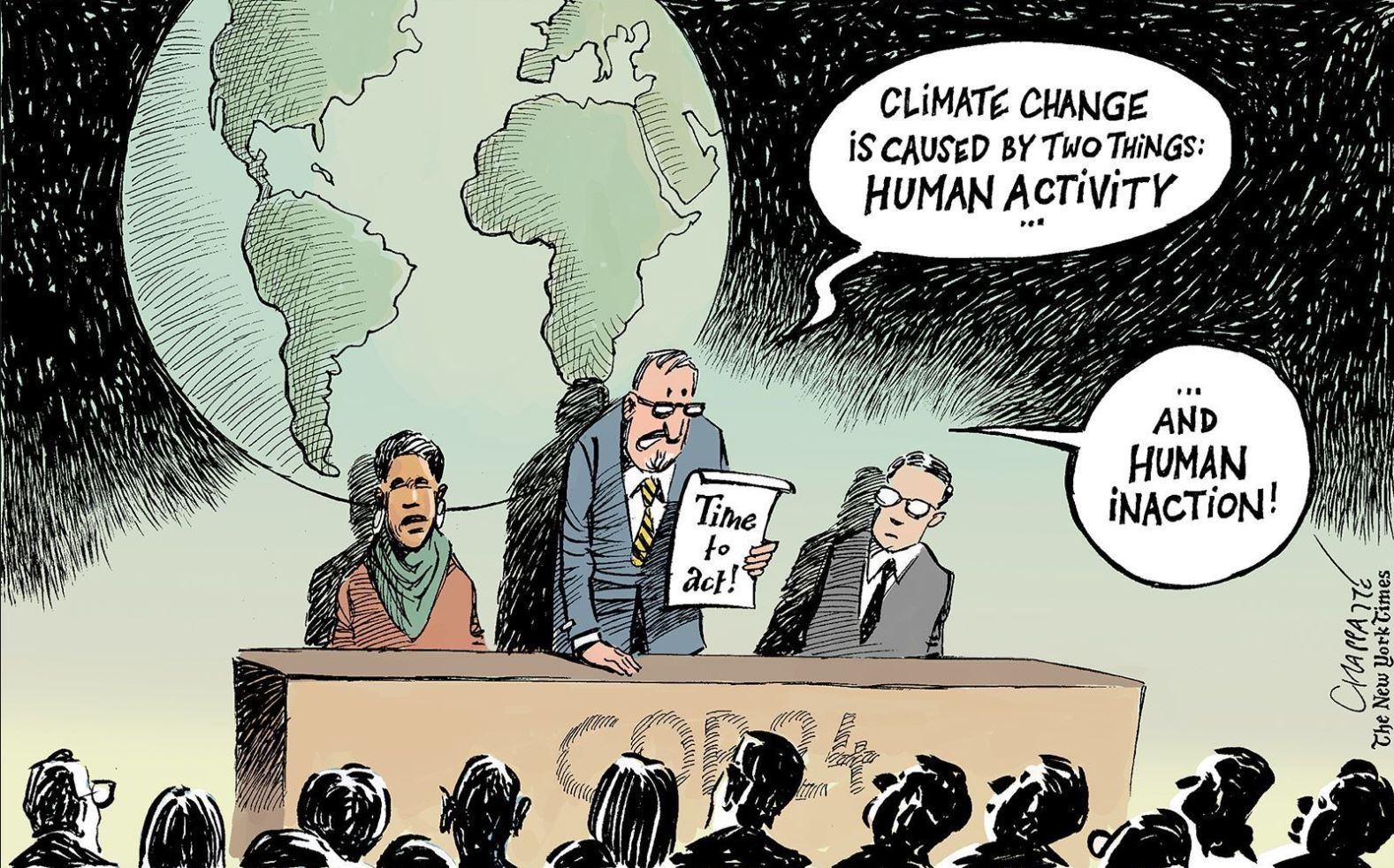
TIME Person of the Year: The Guardians and the War on Truth
Time magazine has named journalists as its “person” of the year. This video portrays journalists from around the world, who continue to report truth.
If 2018 were a film, it’d be “First Reformed”
We don’t ordinarily equate The Tyee with movie reviews, but nonetheless this article contains a list of narrative films and documentaries they consider worth your time. The focus of the article, though, is the film, First Reformed. “First Reformed is an examination of the struggle between faith and despair, and all the big stuff that demands not acceptance, but active and ongoing struggle. It is this spiritual tug-of-war that forms the iceberg under the surface of the story.” Read more. There are also videos profiling: Maria Ressa from the Philippines, and another profiling the staff of the Maryland newspaper, The Capital.
THOUGHT OF THE DAY
If we wait for the meek to inherit the earth, there won’t be anything left to inherit. (Bob Hunter, Greenpeace)
